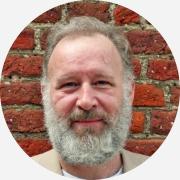You are not currently logged in. Please create an account or log in to view the full course.
Metre 1: Rhythm
- About
- Transcript
- Cite
Poetry: How to Read and Analyse Poetry
In this course, Professor John Lennard talks through the craft of poetry in a course that draws on his international bestseller, The Poetry Handbook, which has been a favourite with both sixth-form students and undergraduates since its first publication in 1996. As we move through the course, we look at every technical aspect of poetry, including metre, form, layout, lineation, rhyme, diction, syntax, before thinking about how much readers of poetry should draw on historical and biographical context when analysing and interpreting poetry.
Throughout the course, technical discussion of poetry is richly illustrated with examples from some of the greatest poets in the English language, including: William Shakespeare, George Herbert, John Donne, Andrew Marvell, Alfred Lord Tennyson, Robert Browning, Wilfred Owen, W. B. Yeats, Philip Larkin, Seamus Heaney, Geoffrey Hill, and Derek Walcott.
Metre 1: Rhythm
We begin the course by thinking about the rhythm of poetry, beginning with its terminology. We may have heard of terms such as ‘iambic pentameter’ and ‘dactylic hexameter’, but what do these terms actually mean? After this, we turn to two aspects of rhythm that it’s worth learning right from the start: first, the difference between ‘rising’ and ‘falling’ rhythm; and second, the difference between ‘duple’ and ‘triple’ rhythm.
Cite this Lecture
APA style
Lennard, J. (2018, August 15). Poetry: How to Read and Analyse Poetry - Metre 1: Rhythm [Video]. MASSOLIT. https://massolit.io/courses/poetry-how-to-read-and-analyse-poetry
MLA style
Lennard, J. "Poetry: How to Read and Analyse Poetry – Metre 1: Rhythm." MASSOLIT, uploaded by MASSOLIT, 15 Aug 2018, https://massolit.io/courses/poetry-how-to-read-and-analyse-poetry

